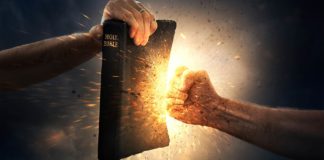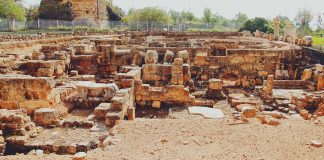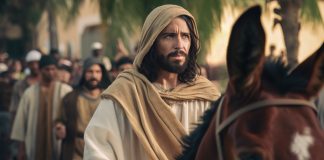What the Bible says about the flat Earth theory
Against the background of declining confidence in the elites—be they political, religious or scientific—flat Earth theory has lately been revived and promoted by a wave of fake news and misinformation that circulates on social media. In this article we will analyse the connection between the Bible and the flat Earth theory.
Divine inspiration | God’s breath upon the prophets
What is “divine inspiration?” How does it happen?
COVID-19: Which end is The End?
As the crisis caused by the new coronavirus deepened and spread, it was to be expected that the phenomenon would be framed in apocalyptic terms. It is something that tends to occur in such contexts.
The accuracy of biblical manuscripts
What guarantees do we have that the texts from which modern translations of the Bible were made reflect the original?
Biblical kings and controversial archaeologists
Traces of the ancient kingdom of Israel occasionally emerge from the dust of the Holy Land. These discoveries are immediately and inevitably followed by fierce controversies among archaeologists. As amateur spectators, Christians are eyewitnesses to these debates and, in one way or another, their faith is shaped by them.
The dilemma of unfulfilled Bible prophecies
There are predictions made in the Bible. Have all the predictions of the past been fulfilled? If not, what does the failure of some of them to be fulfilled say about the credibility of the Bible?
The Bible as a political weapon: When “Thus says the Lord” means “This is what I want”
It is estimated that over 100 million Bibles are printed annually, which means over 11 000 per hour, or about 3 every second. These numbers show the huge impact the Bible has on people’s lives.
How (and why) to read through the Bible every year
More than a collection of information, beyond its role as a guide, the Bible is where we have a redemptive encounter with the One who holds the keys to eternal life.
What Does the Bible Say About Contagious Diseases (like COVID-19)?
Since the outbreak of the corona virus pandemic, many people are asking faith-based questions. Is this a judgment of God on the human race? Is this a sign of the End? Does Bible prophecy speak about it? Even if people don’t believe in God or the Bible, they are wondering what their Christian neighbors are thinking about the matter.
Criticism of Daniel: Arguments of destructive criticism and their counterarguments
The biblical prophet Daniel was treated with hostility during his lifetime and has been attacked throughout history by sceptical or apostate Jews and Christians. At the same time, he has been cherished and defended by people of all generations, including faithful Jews, Jesus Christ, and modern researchers, who have systematically responded to criticisms and objections raised against his book and prophecies.
Born of a virgin
When Larry King was asked who he would most like to interview among all the famous characters of history, his answer was clear: "Jesus Christ". The talk show host wanted to know if Christ had indeed been born of a virgin. "The answer to that question would define history for me,"[1] King said.
Sacred writings
How do the Christian Scriptures differ from non-Christian sacred writings (the Quran, Vedas, Dharmas, Book of Mormon, etc.)?
Daniel: on the pedestal of history
On the pedestal of history, holding the flame of freedom—that's how the Book of Daniel has stood since it first appeared, more than 2500 years ago, and how it continues to stand today. It is a divinely inspired introduction to the book of Revelation, and together they represent the extension of the gospel beyond the apostolic generation up until the return of Christ,...
Stones speak to those willing to listen
On May 23, 2012, the Israel Antiquities Authority announced the discovery of a 1.5 cm piece of clay, which represents the oldest extra-biblical attestation of the town of Bethlehem. Eli Shukron, the coordinator of the excavation work, believes that we are dealing with a bulla from the 7th-8th centuries B.C., probably used for sealing a document or object.
The prophecy of the Messiah
Daniel chapter 9 contains what many consider to be the most sublime prophecy of the Old Testament—a prophecy of the Messiah, Jesus Christ. Amazingly, not only did this prophecy reveal the purpose of His incarnation as a child, but it also specified when His ministry would begin and when He would die.


























